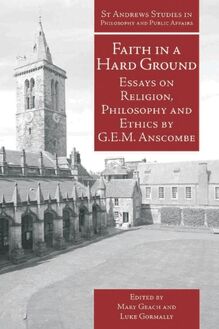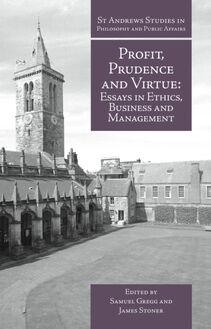-
 Univers
Univers
-
 Ebooks
Ebooks
-
 Livres audio
Livres audio
-
 Presse
Presse
-
 Podcasts
Podcasts
-
 BD
BD
-
 Documents
Documents
-
- Cours
- Révisions
- Ressources pédagogiques
- Sciences de l’éducation
- Manuels scolaires
- Langues
- Travaux de classe
- Annales de BEP
- Etudes supérieures
- Maternelle et primaire
- Fiches de lecture
- Orientation scolaire
- Méthodologie
- Corrigés de devoir
- Annales d’examens et concours
- Annales du bac
- Annales du brevet
- Rapports de stage
La lecture à portée de main
Vous pourrez modifier la taille du texte de cet ouvrage
Découvre YouScribe en t'inscrivant gratuitement
Je m'inscrisDécouvre YouScribe en t'inscrivant gratuitement
Je m'inscrisEn savoir plus
Vous pourrez modifier la taille du texte de cet ouvrage
En savoir plus

Description
Informations
| Publié par | Andrews UK |
| Date de parution | 08 mars 2012 |
| Nombre de lectures | 0 |
| EAN13 | 9781845403904 |
| Langue | English |
Informations légales : prix de location à la page 0,0674€. Cette information est donnée uniquement à titre indicatif conformément à la législation en vigueur.
Extrait
Title Page
Natural Law, Economics, and the Common Good
Perspectives from Natural Law
Edited by Samuel Gregg and Harold James
Copyright Page
This collection Copyright © Imprint Academic, 2012
The moral rights of the authors have been asserted.
No part of this publication may be reproduced in any form without permission, except for the quotation of brief passages in criticism and discussion.
Originally published in the UK by Imprint Academic
PO Box 200, Exeter EX 5 5 YX, UK
Originally published in the USA by Imprint Academic
Philosophy Documentation Center
PO Box 7147, Charlottesville, VA 22906-7147, USA
Digital version converted and published in 2012 by
Andrews UK Limited
www.andrewsuk.com
Cover Photograph:
St Salvator’s Quadrangle, St Andrews by Peter Adamson from the University of St Andrews collection
Contributors
Philip Booth is Editorial and Programme Director at the Institute of Economic Affairs and Professor of Insurance and Risk Management at Cass Business School, London. He has previously worked in the investment department of Axa Equity and Law and as a special advisor to the Bank of England on financial stability matters. He is a Fellow of the Institute of Actuaries and of the Royal Statistical Society.
Samuel Gregg is Director of Research at the Acton Institute. He has written and spoken extensively on questions of political economy, ethics in finance, and natural law theory. He has authored several books including his prize-winning The Commercial Society (2007), Wilhelm Röpke’s Political Economy (2010), and Becoming Europe: Economic Decline, Culture, and America’s Future (2012). He is a Fellow of the Royal Historical Society.
Harold James is Professor of History and International Affairs at Princeton University. His previous books include The Creation and Destruction of Value (2009) , The End of Globalization (2002), and Family Capitalism (2006).
Gerald P. O’Driscoll is a widely quoted expert on banking and monetary policy. Previously director of the Center for International Trade and Economics at the Heritage Foundation, O’Driscoll was senior editor of the annual Index of Economic Freedom . He has also served as vice president and director of policy analysis at Citigroup, vice president and economic advisor at the Federal Reserve Bank of Dallas, and as staff director of the Congressionally-mandated Meltzer Commission on international financial institutions.
Louis W. Pauly holds the Canada Research Chair in Globalization and Governance at the University of Toronto. He is a leading scholar in the field of international political economy. He is the author of Global Ordering: Institutions and Autonomy in a Changing World (2008).
Emma Rothschild is Professor of History at Harvard University and a Fellow of Magdalene College, Cambridge. She is the author of The Inner Life of Empires: An Eighteenth-Century History (2011), and Economic Sentiments: Adam Smith, Condorcet and the Enlightenment (2011).
Ludger Schuknecht is head of the Economic Policy Directorate General at the German Ministry of Finance. Before that he worked for the European Central Bank, which followed assignments at the World Trade Organisation and the International Monetary Fund. His recent research focuses on public expenditure policies and reform and the analysis of economic boom-bust episodes. He is co-author of Public Spending in the 20 th Century: A Global Perspective (2000).
Amity Shlaes directs the economic growth project at the Bush Institute, and she writes a syndicated column with Bloomberg. HarperCollins plans to publish her biography on Calvin Coolidge in 2012. She teaches the economics of the 1930s at the New York University Stern School of Business and is the author of two national bestsellers, The Forgotten Man (2008), and The Greedy Hand (2000).
Edward Skidelsky is a lecturer at the University of Exeter. He is the author of Ernst Cassirer: The Last Philosopher of Culture (2009) and co-author of How Much is Enough? Money and the Good Life (2012). He writes on the institutional theory of art, the intellectual roots of neo-conservatism, and the ethics of capitalism.
Lord Robert Skidelsky is emeritus Professor of Political Economy at the University of Warwick, a fellow of the British Academy, and a crossbench peer. He is the author of the acclaimed three-volume biography of the economist John Maynard Keynes, and most recently Keynes: The Return of the Master (2010).
Craig Smith is a lecturer in the Department of Moral Philosophy at the University of St Andrews and is the author of Adam Smith’s Political Philosophy: The Invisible Hand and Spontaneous Order (2005). He is director of the Politics and Economy Project at the Centre for Ethics Philosophy and Public Affairs.
Benn Steil is director of international economics at the Council on Foreign Relations. His book Money, Markets and Sovereignty (2010), co-authored with Manuel Hinds, was awarded the 2010 Hayek Book Prize.
James R. Stoner, Jr. , is Professor of Political Science at Louisiana State University. He is the author of Common Law and Liberal Theory (1992), and Common-Law Liberty (2003), and editor, with Samuel Gregg, of Profit, Prudence and Virtue: Essays in Ethics, Business and Management (2009).
Arthur Waldron is the Lauder Professor of International Relations in the Department of History at the University of Pennsylvania. A specialist in Asian history, he was educated at Harvard, and he has previously taught at Princeton, Brown, and the Naval War College. He has written several books in English, including From War to Nationalism: China’s Turning Point, 1924-1925 (2003), and edited four books, including two in Chinese. His works have been translated into Chinese, Italian, Korean, and Japanese.
John Haldane: Preface
In 2009 St Andrews Studies published a volume entitled Profit, Prudence and Virtue: Essays in Ethics, Business and Management , edited by Samuel Gregg and James Stoner. This originated in a project developed by the Social Trends Institute in New York in collaboration with the Witherspoon Institute in Princeton, NJ, which led to a conference convened in Princeton in 2007. In addition to essays deriving from that meeting, Profit, Prudence and Virtue contained a number of chapters commissioned subsequent to the banking crisis and recession of 2008.
Evidently, those events, or more accurately processes, continue to have effects. One such has been to call into question the role of large financial institutions, particularly in relation to money-market mutual funds and other credit instruments. What was said to have begun a few years earlier as a growing threat of unrecoverable mortgage-debt, quickly revealed extensive leverage schemes and other forms of commercial-asset speculation: and these had produced levels of indebtedness that simply could not be covered by capital available within the traditional banking system.
Beyond that, however, it became clear that public deficit and debt within major western economies threatened their capacity to borrow in international credit markets and that national and international banks might lack the resources to provide relief. Vast International Monetary Fund, European Central Bank and governmental loans were provided to Ireland, Greece, Portugal, Spain, and Italy in an effort to assure the bond markets that these countries would be supported in their borrowing efforts, but those markets took their own view of some national economies and the required returns on sovereign bonds rose to unmanageable levels.
Having once borrowed to invest, and then to cover temporary deficits, nations such as those mentioned have been borrowing to pay back the interest on prior borrowing. So it has continued to the point where it has become impossible for some to borrow at all, and sovereign credit default has begun in Europe. Not only has the credit worthiness of some of the smaller, recently developed economies been destroyed but that of major Western nations has been questioned. The largest sovereign credit rating agencies have reduced the long-term evaluation of the debt securities of major countries, including the United States and France. As nations implement fiscal plans designed to curb or cut expenditure and/or increase tax revenue, so growth is diminishing and with it the potential to earn a route to debt freedom. A further slowdown in economic activity has begun and a major and protracted downturn is increasingly likely.
There have, of course, been many factors at work in bringing the international economy to this point, but a major one is the borrowing and lending of money. In his Politics Aristotle gives a speculative account of the development of money, according to which it first arose in order to ease the exchange of goods, allowing for a separation of the circumstances of exchange beyond those involved in direct barter. This gives an essentially instrumental justification, and Aristotle believed that the acquisition of money for its own sake has no natural purpose and is thereby irrational. Elsewhere he makes the point more generally arguing, in the Rhetoric , that wealth consists in using things rather than merely owning them. These are among the earliest philosophical reflections on economics and its relation to human good; but as with so much else in his philosophy Aristotle’s ideas influenced Western thought particularly through their appropriation by major figures such as Aquinas. This indeed constituted a major part of the tradition that has come to be known as natural law ethics .
Aware that the earlier project on ethics, business and management raised questions of a fundamental nature that needed to be addressed further, and conscious of the impact of the debt cri
-
 Univers
Univers
-
 Ebooks
Ebooks
-
 Livres audio
Livres audio
-
 Presse
Presse
-
 Podcasts
Podcasts
-
 BD
BD
-
 Documents
Documents
-
Jeunesse
-
Littérature
-
Ressources professionnelles
-
Santé et bien-être
-
Savoirs
-
Education
-
Loisirs et hobbies
-
Art, musique et cinéma
-
Actualité et débat de société
-
Jeunesse
-
Littérature
-
Ressources professionnelles
-
Santé et bien-être
-
Savoirs
-
Education
-
Loisirs et hobbies
-
Art, musique et cinéma
-
Actualité et débat de société
-
Actualités
-
Lifestyle
-
Presse jeunesse
-
Presse professionnelle
-
Pratique
-
Presse sportive
-
Presse internationale
-
Culture & Médias
-
Action et Aventures
-
Science-fiction et Fantasy
-
Société
-
Jeunesse
-
Littérature
-
Ressources professionnelles
-
Santé et bien-être
-
Savoirs
-
Education
-
Loisirs et hobbies
-
Art, musique et cinéma
-
Actualité et débat de société
- Cours
- Révisions
- Ressources pédagogiques
- Sciences de l’éducation
- Manuels scolaires
- Langues
- Travaux de classe
- Annales de BEP
- Etudes supérieures
- Maternelle et primaire
- Fiches de lecture
- Orientation scolaire
- Méthodologie
- Corrigés de devoir
- Annales d’examens et concours
- Annales du bac
- Annales du brevet
- Rapports de stage



















